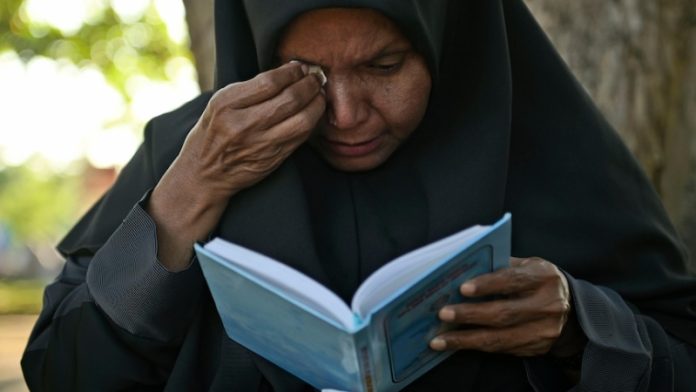People gathered at one of several mass graves in Banda Aceh for the anniversary. (AP Photo: Reza Saifullah)
In short:
People have gathered in prayer and visited mass graves in Indonesia's Aceh province to mark the 20th anniversary of the massive Indian Ocean tsunami.
On Boxing Day in 2004, a powerful 9.1-magnitude earthquake off the coast of Sumatra triggered the giant wave that killed about 230,000 people.
Even though two decades have passed, survivors are still grieving the loved ones they lost to the wall of water that caused one of modern history's worst natural disasters.
People have gathered in prayer and visited mass graves in Indonesia's Aceh province to mark the 20th anniversary of the massive Indian Ocean tsunami, one of modern history's worst natural disasters.
Many openly wept as they placed flowers at a mass grave in Ulee Lheue village where more than 14,000 unidentified and unclaimed tsunami victims are buried.
It is one of several mass graves in Banda Aceh, the capital of Indonesia's northernmost province, which was one of the areas worst-hit by the earthquake and tsunami on December 26, 2004.
"We miss them and we still don't know where they are," said Muhamad Amirudin.
Survivors of the world's deadliest tsunami recount the day
Photo shows A close-up of Fauziah Basyriah in a florally patterned Hijab, looking sorrowfully at the camera.
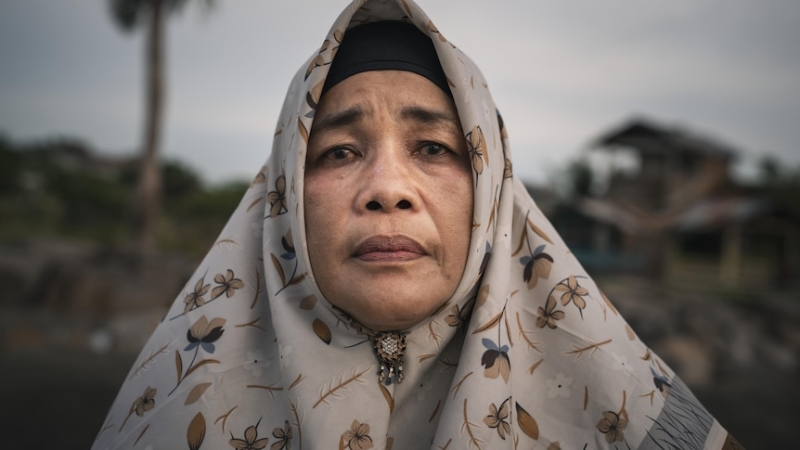
He lost two of his children and their bodies have never been found.
"All we know is that every year we visit the mass grave in Ulee Lhue and Siron," he added.
"This life is only temporary, so we do our best to be useful to others," Mr Amirudin said while beside the grave with his wife.
A powerful 9.1-magnitude earthquake off the coast of the Indonesian island of Sumatra triggered the tsunami that killed about 230,000 people across a dozen countries, reaching as far as East Africa.
More than 1.7 million people were displaced, mostly in the four worst-affected countries: Indonesia, Sri Lanka, India and Thailand.
More than 170,000 people died in Indonesia alone.
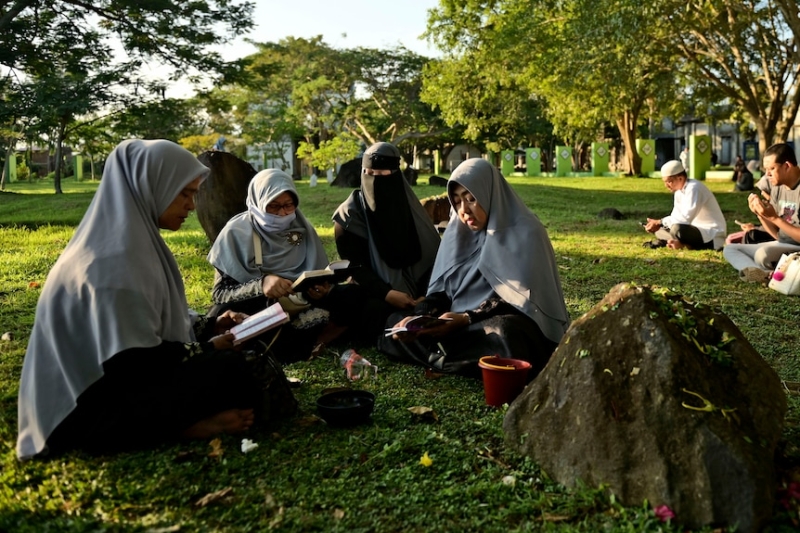
More than 14,000 unidentified and unclaimed tsunami victims are buried in the region. (AP: Reza Saifullah)
Even though two decades have passed, survivors are still grieving the loved ones they lost to the giant wave that flattened buildings all the way to the provincial capital of Banda Aceh.
Thousands of people gathered to pray at the Baiturrahman Mosque in downtown Banda Aceh.
Sirens sounded across the city for 3 minutes to mark the time of the earthquake that triggered the tsunami.
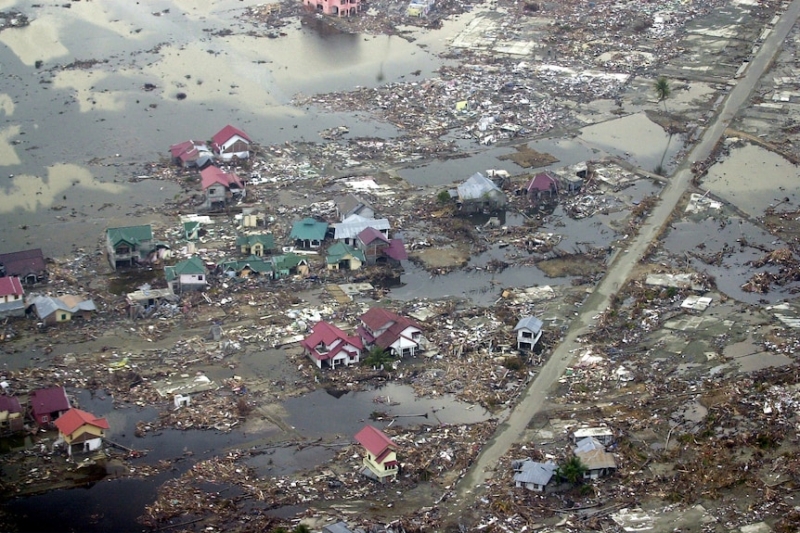
More than 170,000 people died in Indonesia alone. (AP: Dudi Anung/File)
The infrastructure in Aceh has been rebuilt and is now more resilient than it was before the tsunami struck.
Early warning systems have been installed in coastal areas to alert residents of potential tsunamis, providing crucial time to seek safety.
The rebuilding efforts were made possible by the support of international donors and organisations, who contributed significant funds to help the region recover.
Schools, hospitals, and essential infrastructure that were destroyed by the disaster have been reconstructed with enhanced strength and durability, ensuring better preparedness for future challenges.
400 bodies remain unclaimed in Thailand
In Thailand, people gathered at a memorial ceremony in Ban Nam Khem, a small fishing village in Phang Nga province that bore the brunt of the devastating waves.
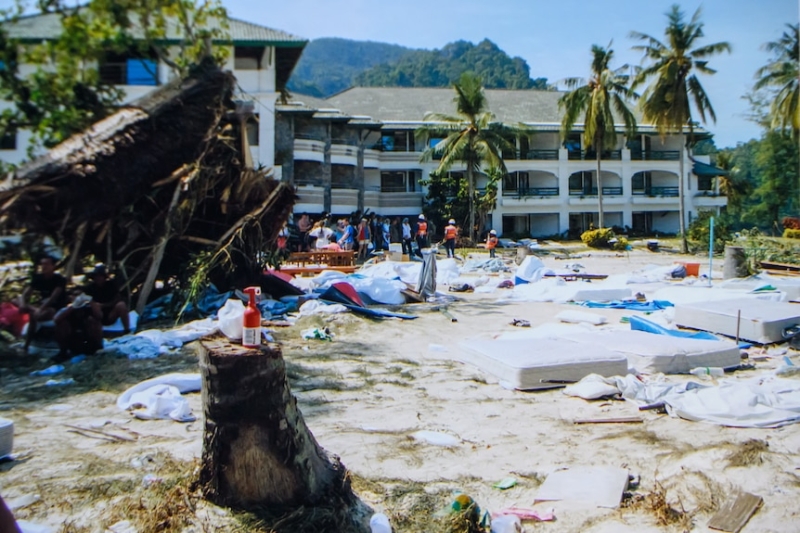
An old photo of the makeshift rescue centre in Phuket from the day of the tsunami. (Supplied)
The tsunami also claimed the lives of over 8,000 people in Thailand, including many who remain missing, leaving a deep scar on the nation's history.
Nearly 400 bodies remain unclaimed.
Mourners shed tears and comforted each other as they laid flowers at the village's tsunami memorial.
About 300 people joined a modest ceremony with Muslim, Christian and Buddhist prayers.
Urai Sirisuk said she avoids the seaside memorial park the rest of the year because the loss of her four-year-old daughter still cuts deep every time she's reminded of it.
"I have this feeling that the sea has taken my child. I'm very angry with it. I can't even put my foot in the water," she said.
But, she said, "I can't abandon her. So I have to be here, for my child".
"I still hear her voice in my ears, that she's calling for me."
AP

